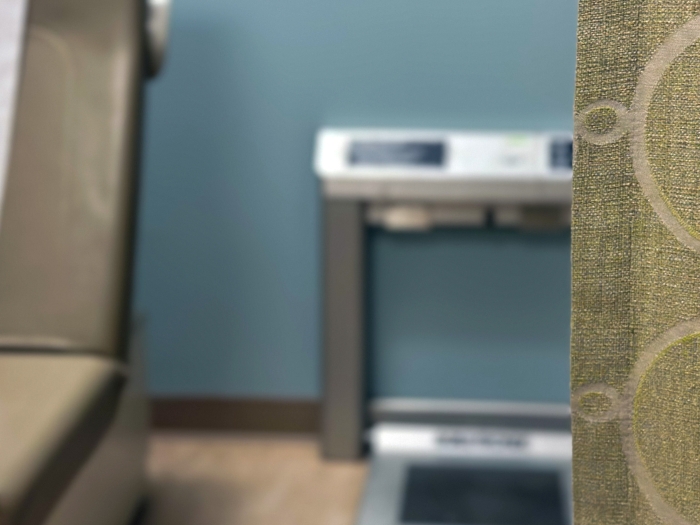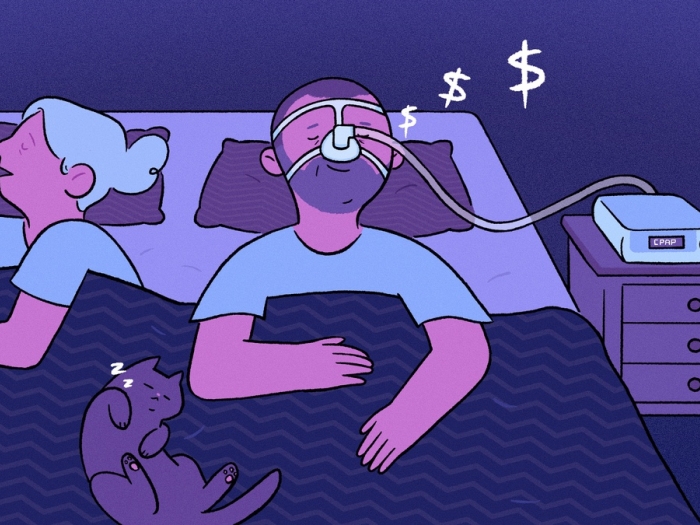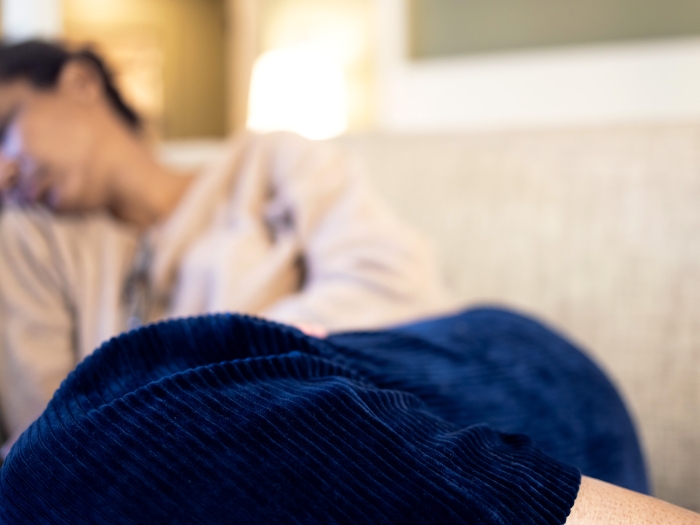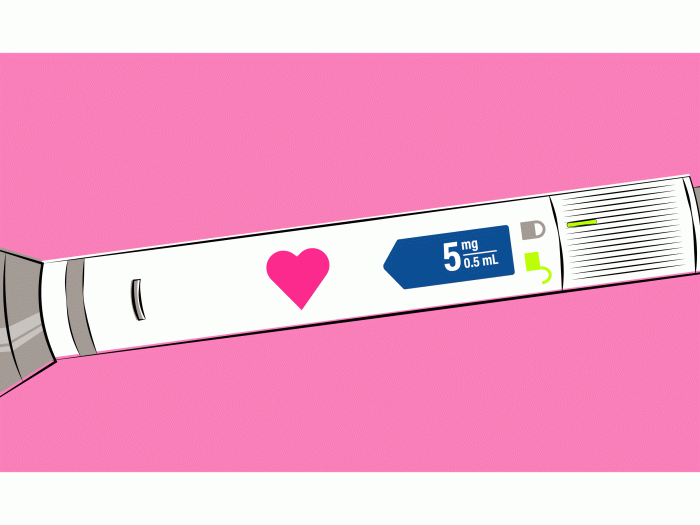Latest findings in the ongoing debate about catch-up sleep show it could be protective against obesity for older children and teens.
2:14 PM
Author |
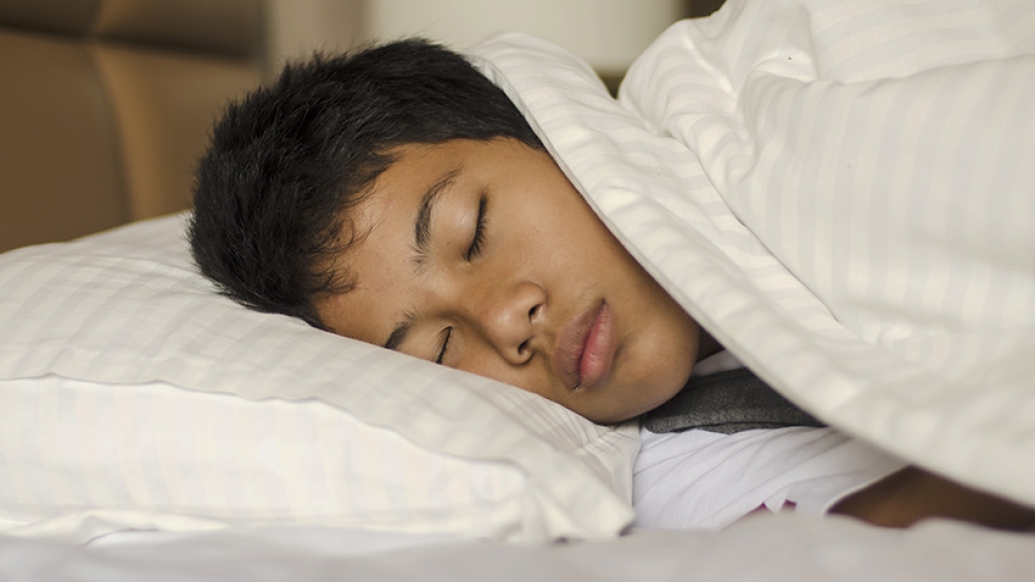
Older children and teenagers may have a higher risk of obesity if they consistently don't get enough sleep, according to recent Michigan Medicine research.
The study, published in the Journal of Pediatrics, found the highest levels of obesity in adolescents who weren't sleeping enough night after night, even more so than those so-called "yo-yo" sleepers who sometimes logged enough shut-eye, but sometimes fell short.
LISTEN UP: Add the new Michigan Medicine News Break to your Alexa-enabled device, or subscribe to our daily audio updates on iTunes, Google Play and Stitcher.
That means although catching up on sleep isn't the best strategy for adolescents to ensure they are reaping all the other sleep benefits like cognition and alertness, it could positively impact weight if that's the only way to manage more hours in a week, researchers say.
"We already know short sleep duration is associated with childhood obesity, but we thought it could be more nuanced than that," says first author Erica Jansen, Ph.D., M.P.H., a former research fellow at the University of Michigan Sleep Disorders Centers and current assistant professor in U-M's School of Public Health. "What this really highlights is: it's not just the kids who have some nights of short sleep who are at risk for obesity; rather, it's the kids who are consistently not getting enough sleep."
Better measures of sleep and obesity
Jansen and second author Galit Levi Dunietz, Ph.D., M.P.H., assistant professor in the U-M Division of Sleep Medicine, led the study into sleep habits and adiposity (fatness) among 528 students ages 9 to 17 living in Mexico City. Each child or teenager wore a wrist monitor for seven days to track sleep duration.
MORE FROM MICHIGAN: Sign up for our weekly newsletter
"It was important to objectively measure how long the adolescents were sleeping by having them wear monitors on their wrists," Dunietz says. She adds it's relatively rare to see a sample this large of child and teenage sleep duration that hasn't been self-reported, and this reduces the risk of measurement error and bias.
Catching up (on sleep) on the weekends could have some protective benefit when it comes to excess weight.Erica Jansen, Ph.D.
Because body mass index may not be the best marker of obesity for children, researchers added three additional measures: triceps skinfolds, waist circumference and percent body fat. Thirteen percent of the participants met the study criteria for obesity, while 25 percent were overweight.
For obesity, yo-yo sleep beats chronic short sleep
"Teens are a vulnerable population to sleep debt, and 41 percent of the study participants had insufficient sleep," Jansen says. "Adolescents with insufficient sleep had a higher prevalence of obesity, in particular those who had consistent insufficient sleep. Conversely, adolescents reporting consistent sufficient sleep had the lowest adiposity measures in this observational cross-sectional study."
Obesity rates continue to rise globally in all age groups, driving more and more researchers to investigate better ways to attack it. Diet and physical activity programs haven't been fully successful in preventing teenagers from becoming obese or encouraging them to reach a lower BMI, researchers say, and they believe sleep may prove to be a manageable add-on to affect weight control as well.
Dunietz notes that although 40 percent of the Mexican adolescents didn't sleep enough on average, this represents a lower percentage than their US counterparts, of which an estimated 60 to 70 percent do not meet sleep duration recommendations.
This could be because the study participants have a different school day than most teens in the U.S.: some attend classes in the morning, while others attend classes in the afternoon. That two-shift school scheduling is due to high population density in Mexico City, the investigators say.
Previous research by Dunietz noted that, while many sleep experts endorse allowing teenagers to sleep in a little longer each day before hitting the books, half of parents in a U.S. survey were against the idea of pushing school start times back.
Avoid the need to catch up
Researchers urge parents to take this data as a reminder to encourage positive sleep hygiene. Children ages 6 to 12 should get nine to 12 hours of sleep every night, while teens ages 13 to 18 should sleep for eight to 10 hours, according to the consensus recommendations by the American Academy of Sleep Medicine, which are endorsed by the American Academy of Pediatrics.
"Obviously, the best thing is to get enough sleep on a consistent basis," Jansen says. "The feeling among sleep researchers is you can't ever fully catch up on lost sleep. But, although we cannot assume causality, our findings suggest that if you're not getting enough sleep on a consistent basis, catching up a bit on the weekends could have some protective benefit when it comes to excess weight."
After insufficient sleep, researchers note, a longer time in bed the following night could allow for more time in slow-wave, or deep sleep; it is during this stage of sleep that a hormone called growth hormone is released, which could protect against obesity.
However, future studies must be conducted to address causality, given that sleep and adiposity were measured at the same time in this study.

Explore a variety of healthcare news & stories by visiting the Health Lab home page for more articles.

Department of Communication at Michigan Medicine
Want top health & research news weekly? Sign up for Health Lab’s newsletters today!

